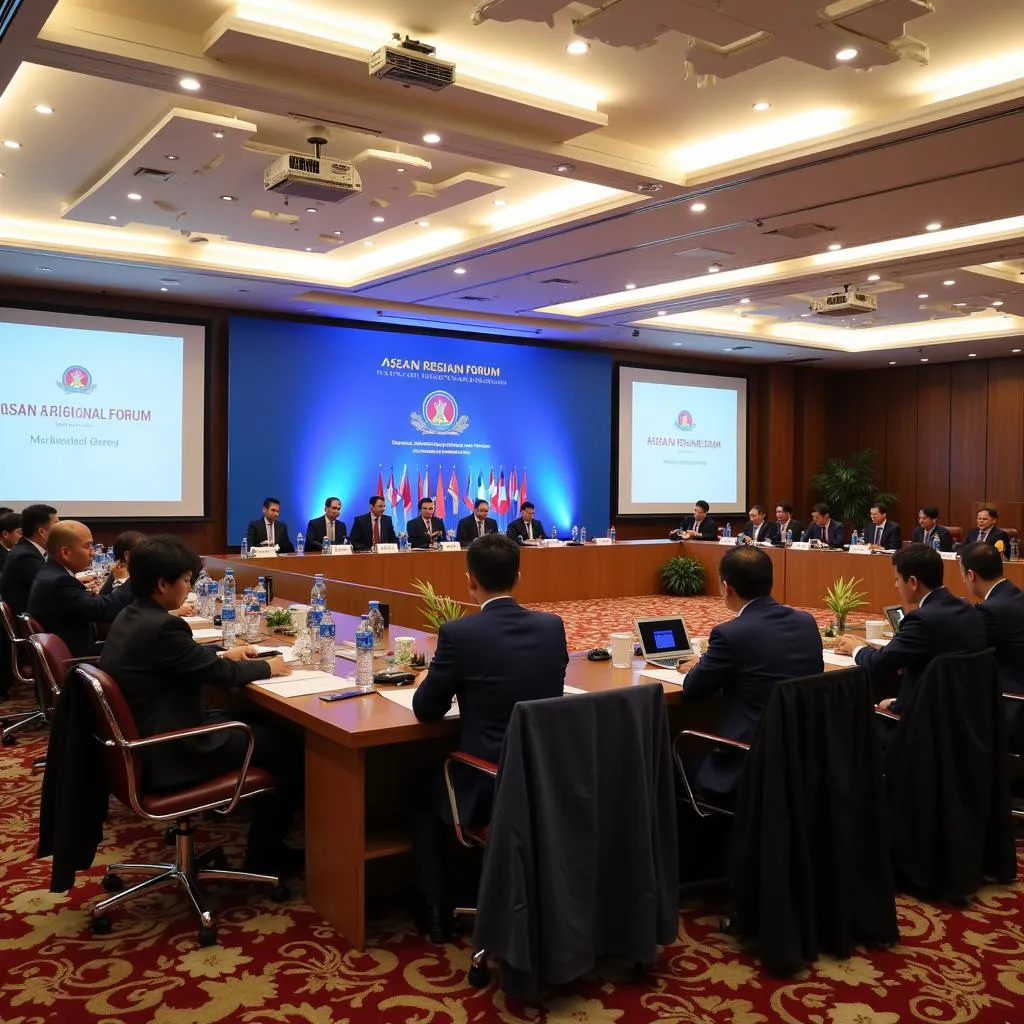Southeast Asia is a region of immense diversity, with a rich cultural heritage and a rapidly growing economy. However, it also faces a number of challenges, including internal conflicts, external threats, and the rise of transnational crime. In response to these challenges, the Association of Southeast Asian Nations (ASEAN) has played a vital role in promoting regional security and stability. This article explores the crucial role of ASEAN in ensuring security in Southeast Asia, delving into the organization’s key initiatives, challenges, and future prospects.
The Importance of ASEAN in Southeast Asian Security
ASEAN is the primary regional organization in Southeast Asia, encompassing ten member states: Brunei, Cambodia, Indonesia, Laos, Malaysia, Myanmar, Philippines, Singapore, Thailand, and Vietnam. Its core principles revolve around maintaining peace, stability, and prosperity within the region. Since its inception in 1967, ASEAN has steadily evolved into a significant force for regional security, achieving remarkable progress in fostering cooperation and addressing shared concerns.
ASEAN’s contributions to regional security are multifaceted. The organization has established a framework for dialogue and collaboration, enabling member states to collectively address common security challenges. Through its various platforms, ASEAN provides a forum for diplomatic discussions, confidence-building measures, and conflict resolution. Notably, ASEAN has successfully played a pivotal role in resolving several regional conflicts, including the Cambodian civil war and the East Timor crisis.
ASEAN’s Security Initiatives: Pillars of Stability
ASEAN’s commitment to security is evident in its various initiatives aimed at promoting regional stability. Some of its most significant initiatives include:
-
The ASEAN Regional Forum (ARF): Established in 1994, the ARF is a platform for dialogue and cooperation on security issues involving ASEAN member states and other regional actors. This forum brings together 27 participating countries, facilitating discussions on topics such as terrorism, non-proliferation, and maritime security.
-
The ASEAN Defence Ministers Meeting (ADMM): The ADMM is a platform for defense ministers from ASEAN member states to discuss security challenges and enhance cooperation in areas such as maritime security, humanitarian assistance, and disaster relief. The ADMM+ expands on this platform, bringing together defense ministers from ASEAN and its dialogue partners, further strengthening regional cooperation.
-
The ASEAN Security Community (ASC): Launched in 2007, the ASC envisions a secure and peaceful Southeast Asia, built on the principles of mutual respect, non-interference, and peaceful coexistence. The ASC framework emphasizes the importance of political and security cooperation, as well as economic and socio-cultural integration, to achieve its objectives.
Challenges and Future Prospects: Navigating a Complex Landscape
While ASEAN has made considerable strides in promoting security in Southeast Asia, the region faces ongoing challenges that demand a collaborative approach. These challenges include:
-
Territorial Disputes: The South China Sea disputes, involving multiple claimants including China, Vietnam, the Philippines, Malaysia, and Brunei, remain a major source of tension. ASEAN’s role in navigating these disputes and promoting peaceful resolutions is crucial.
-
Transnational Crime: The rise of transnational crime, including drug trafficking, human trafficking, and cybercrime, poses a significant threat to regional security. ASEAN’s efforts to combat these crimes through regional cooperation and information sharing are vital.
-
Terrorism: The threat of terrorism, both from domestic and foreign actors, remains a concern in Southeast Asia. ASEAN’s initiatives to combat terrorism, including counter-terrorism exercises and information sharing, are essential to address this threat.
-
Cybersecurity: The increasing reliance on technology presents new challenges for cybersecurity in Southeast Asia. ASEAN’s efforts to strengthen cybersecurity capabilities, address cyber threats, and foster responsible use of technology are critical.
Despite these challenges, ASEAN’s commitment to regional security remains steadfast. The organization is constantly adapting to evolving security threats, enhancing its capabilities, and fostering greater cooperation among member states. As the region continues to grow and develop, ASEAN’s role in maintaining stability and promoting a secure environment will be crucial for future prosperity.
FAQs
- What is the main goal of ASEAN in terms of security? ASEAN’s primary goal is to promote regional security and stability through dialogue, cooperation, and conflict resolution.
- How does ASEAN address territorial disputes? ASEAN seeks to manage territorial disputes through diplomacy, dialogue, and peaceful resolutions. It encourages the parties involved to engage in constructive discussions and find mutually acceptable solutions.
- What are some of the key achievements of ASEAN in promoting security? ASEAN has played a significant role in resolving regional conflicts, including the Cambodian civil war and the East Timor crisis. It has also successfully established a framework for dialogue and cooperation on security issues, enhancing regional stability.
- What are the future challenges for ASEAN in maintaining security? ASEAN faces ongoing challenges related to territorial disputes, transnational crime, terrorism, and cybersecurity. The organization needs to adapt to these evolving threats and strengthen its capabilities to address them effectively.
 ASEAN security cooperation in action
ASEAN security cooperation in action
 Maritime security in Southeast Asia
Maritime security in Southeast Asia
ASEAN’s commitment to regional security is a testament to its dedication to peace and prosperity in Southeast Asia. The organization’s initiatives and efforts have contributed significantly to maintaining stability and fostering a secure environment for its member states. However, as the region faces new challenges, ASEAN must continue to evolve and adapt to ensure it remains a vital force for peace and stability in the future.
